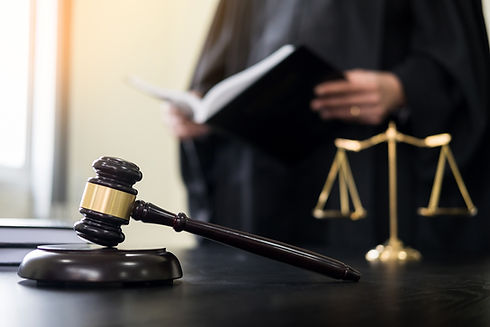
CHAPTER 13
- **Wage Earner's Plan**: Chapter 13 bankruptcy, often known as the "wage earner's plan," empowers individuals with steady income to craft a debt repayment strategy. Debtors propose a plan to pay creditors over three to five years.
- **Plan Duration**: If your current monthly income falls below the state median, your plan typically spans three years unless extended "for cause" with court approval. If your income exceeds the state median, the plan usually spans five years. In no case can the plan extend beyond five years.
- **Creditor Protection**: While under Chapter 13 protection, creditors are legally prevented from initiating or pursuing collection efforts against you.
This chapter covers key aspects of a Chapter 13 proceeding, including its advantages, eligibility criteria, process, plan execution, and the special Chapter 13 discharge.
At Ramos Law Firm, we specialize in Chapter 13 bankruptcy, providing individuals with a path to financial renewal. Contact us today to explore your options and achieve financial peace.
Advantages
**Chapter 13: Your Path to Financial Stability**
- **Saving Your Home**: Chapter 13 offers a vital lifeline to homeowners facing foreclosure. By filing under this chapter, you can halt foreclosure proceedings and gradually catch up on missed mortgage payments. However, it's crucial to stay current on future mortgage payments during your Chapter 13 plan.
- **Rescheduling Secured Debts**: Chapter 13 provides the opportunity to reorganize secured debts (excluding your primary residence mortgage) and extend payments over the plan's duration. This can potentially reduce your financial burden.
- **Protection for Co-Signers**: Chapter 13 includes a unique safeguard for co-signers on "consumer debts." It shields them from the repercussions of your bankruptcy, offering added peace of mind.
- **Streamlined Payments**: Under Chapter 13, you make a single monthly payment to a trustee who then distributes it to creditors. This consolidation approach simplifies your financial dealings, as you won't have direct contact with creditors during your Chapter 13 protection.
At Ramos Law Firm, we specialize in Chapter 13 bankruptcy and can help you secure your home, manage your debts, and regain financial stability. Contact us today to discuss your options and secure your financial future.


Eligibility
**Chapter 13 Eligibility Simplified**
- **Who Can File**: Individuals, including the self-employed, can seek relief through Chapter 13 bankruptcy if their unsecured debts are less than $360,475, and secured debts are less than $1,081,400. These amounts are adjusted to reflect changes in the consumer price index.
- **Not for Businesses**: Chapter 13 is not available to corporations or partnerships.
- **Prior Bankruptcy Dismissals**: You cannot file for Chapter 13 or any other chapter if, within the last 180 days, a previous bankruptcy petition was dismissed because of your failure to comply with court orders or if it was voluntarily dismissed after creditors sought relief to recover their property with liens.
- **Credit Counseling**: Before filing, individuals must undergo credit counseling from an approved agency, either individually or in a group, within 180 days. Exceptions exist for emergencies or if approved agencies are insufficient. If a debt management plan is created during counseling, it must be filed with the court.
At Ramos Law Firm, we help individuals understand their Chapter 13 eligibility and guide them through the bankruptcy process. Contact us to explore your options for financial relief.
How it Works
**Starting a Chapter 13 Bankruptcy Case**
- **Filing Your Petition**: Your Chapter 13 bankruptcy journey begins by filing a petition with the local bankruptcy court where you reside.
- **Required Filings**: You'll need to provide several documents, including schedules of your assets, liabilities, current income, and expenses, as well as details about contracts, leases, and your financial affairs.
- **Credit Counseling**: You must include a certificate of credit counseling and any debt repayment plan developed through counseling.
- **Income Records**: Include evidence of payments received from employers within 60 days before filing, a statement of your monthly net income, and any expected changes in income or expenses.
- **Education Accounts**: If applicable, disclose your interest in federal or state qualified education or tuition accounts.
- **Tax Returns**: Provide the chapter 13 trustee with copies of your tax returns for the most recent year and those filed during the case.
- **Joint or Individual Filings**: Married couples can file a joint petition, or individuals can file separately.
- **Filing Fees**: Courts charge a $235 case filing fee and a $46 miscellaneous administrative fee. These fees may be paid in installments with court permission.
- **Information Gathering**: To complete the necessary forms, gather information about creditors, income sources, property, and monthly living expenses.
Failure to pay these fees may lead to case dismissal, so it's crucial to meet payment deadlines.
At Ramos Law Firm, we assist clients through every step of their Chapter 13 bankruptcy. Contact us today to learn more about how we can help you achieve financial relief and stability.


**Chapter 13 Bankruptcy: What You Need to Know**
- **For Married Individuals**: Whether filing jointly or separately, married individuals need to provide financial information for both spouses. Even if only one spouse is filing, the non-filing spouse's income and expenses are required for a complete financial evaluation.
- **Chapter 13 Trustee**: When you file for Chapter 13, a trustee is appointed to manage your case. They assess your situation, collect payments, and distribute them to creditors.
- **Automatic Stay**: Filing under Chapter 13 puts an automatic stop to most collection actions against you or your property. Creditors can't pursue lawsuits, garnish wages, or make harassing calls while the stay is in effect.
- **Special Protection for Co-Debtors**: Chapter 13 includes an automatic stay provision that shields co-debtors. Creditors can't collect consumer debts from individuals who share liability with the debtor.
- **Home Protection**: Chapter 13 can help save your home from foreclosure. The automatic stay halts foreclosure proceedings, allowing you to catch up on past-due payments over time. However, act promptly as the home may still be at risk if foreclosure sale completes before filing or if regular mortgage payments are missed.
Ramos Law Firm is here to guide you through the Chapter 13 process and protect your financial interests. Contact us today for expert legal assistance.
Within 21 to 50 days of filing a Chapter 13 bankruptcy petition, a significant event takes place: the meeting of creditors. In cases where the meeting location lacks regular U.S. trustee or bankruptcy administrator staffing, this meeting can occur within 60 days of filing. During this meeting, the Chapter 13 trustee swears in the debtor, and both the trustee and creditors have the opportunity to ask questions.
It's essential for the debtor to attend this meeting and provide answers regarding their financial situation and the proposed terms of the repayment plan. For joint petition filers (e.g., spouses), both must be present and respond to inquiries. To ensure impartiality, bankruptcy judges do not attend these meetings.
Typically, any issues related to the repayment plan are resolved during or shortly after the creditors' meeting. To avoid complications, debtors should ensure their petition and plan are complete and accurate, and they may benefit from consulting with the trustee before the meeting.
For unsecured creditors to participate in distributions from the bankruptcy estate, they must file their claims with the court within 90 days of the initial creditors' meeting. However, governmental units have up to 180 days from the case filing date to submit a proof of claim.
Following the creditors' meeting, a crucial phase unfolds in court: the hearing on the debtor's Chapter 13 repayment plan.
At Ramos Law Firm, our team of experienced bankruptcy attorneys is here to guide you through this process. Contact us today to discuss your financial path toward stability and relief.
***Information provided by http://www.uscourts.gov/


